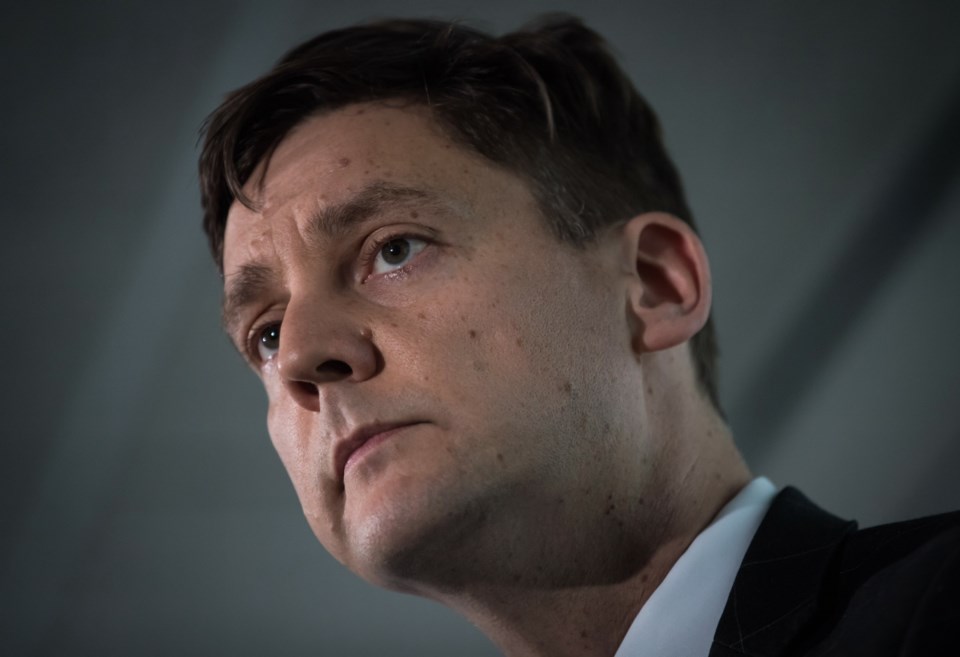While waiting for the money laundering inquiry to start, the B.C. government tried Tuesday to block one of the lesser-known routes dirty money might be following in B.C.
Post-secondary institutes were fingered in the independent report by Peter German as another possible area where illicit cash was being churned into clean money.
Advanced Education Minister Melanie Mark sent a letter to B.C.’s 25 public post-secondary institutions and 342 private ones drawing attention to the sidelight in the report.
German’s investigation into money laundering, which cost $513,000, focused mostly on casinos, real estate and luxury cars. But during the probe, he set up a tip line and collected a few leads on other sectors.
Some referred to private colleges’ willingness to accept cash for tuition and expenses. Some public colleges and universities do the same thing, a source told investigators.
“Among the concerns expressed to us were international students paying tuition and other expenses in cash, overpaying into their student account, seeking refunds by cheque,” said German.
The suspicions were that some students were registering, paying by cash and then withdrawing and getting refund cheques, which would cleanse the money.
In one case, a student faced a bill of $150 and showed up with $9,000 in cash in a duffel bag and asked to deposit it, minus the $150. “In effect, the institution was being asked to act as a bank.”
Another tale arose from a book by a former U.S. Drug Enforcement Agency officer. He detailed the B.C. activities of the Mexican drug cartel once headed by the notorious El Chapo.
They were overseen by a 22-year-old who lived in Vancouver and was allegedly enrolled in a private college.
Mark’s letter asks each institution to review their financial policies to ensure that payments of large amounts of cash from a single student are not accepted.
If the institutions have a policy on cash, they are to share it with the minister. If they don’t, they are asked to develop one and advise how long it will take to put in place.
It’s a fairly mild response to the revelations, given that she doesn’t ask them to check back and find any cases where they might have been used to launder money. She has limited authority over the bodies.
Mark said she didn’t want to single out any institutions, and didn’t want to single out international students.
She told reporters that the higher-education sector was found to be vulnerable and needs to protect itself.
Attorney General David Eby, who instigated the German report and has driven much of the government’s response to it, said: “I don’t think anyone thought we’d be making announcements about post-secondary institutions, but here we are.”
Eby on Monday updated the legislature on anti-money laundering efforts in B.C. casinos, where the attention first focused a few years ago.
Following earlier recommendations from German, there is now a gaming intelligence unit that collects all unusual or suspicious cash transaction reports from the casinos. Eby said it then meets with the B.C. Lottery Corp. to analyze them.
But the volumes of such transactions have dropped substantially. In the first few quarterly reports after German’s initial probe was released in late 2017, the tallies ranged between $600,000 and $2.2 million.
Prior to the report, the values were many times higher.
Similarly, a new requirement to identify the source of cash in large transactions has reduced amounts being reported substantially.
Eby said Tuesday there has been a definite decline in the volumes of money taken in from high-rolling
gamblers.
B.C. Lottery Corp. downgraded projections by $40 million to account for the increased scrutiny. Eby said table game revenue is staying flat.
But the suspicion is that money laundering has just moved to different sectors of the economy.
“We know the money has gone somewhere, we’re just tracking down where it’s going now,” Eby said.
Several million dollars has been allocated to various agencies for more staff and more enforcement.
The government’s overall gambling revenue is still slightly higher than expected, mostly because there was a long run of huge lottery jackpots and that spurred more business.



